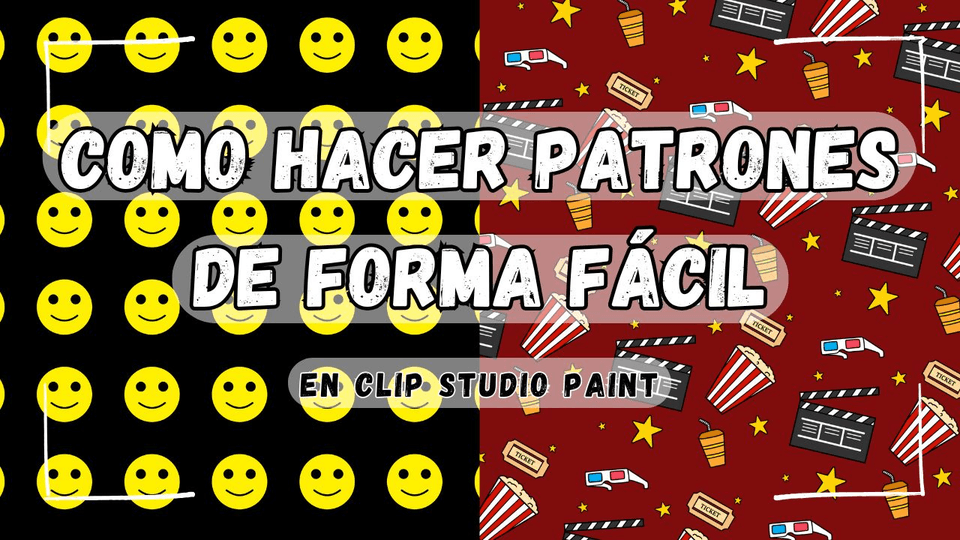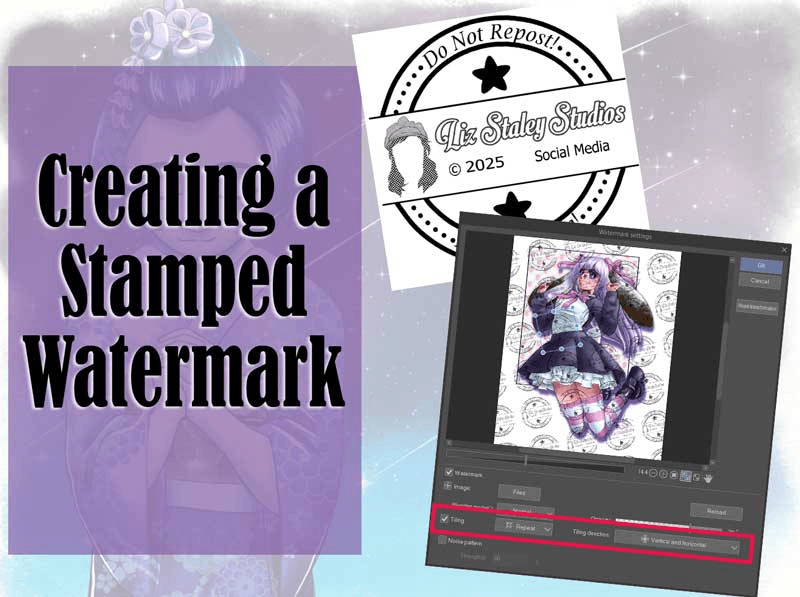Tips on how to draw a face in multiple angles
Hello again, I am Lepus Nix and in this tip, I will show you various ways to draw heads in different angles. At the end of this, drawing your characters' faces in various positions should be easier.
Clip Studio Paint has a lot of nice features to help you draw and we will go through some of them to draw our heads.
1- The 3 basic angles
Before drawing the face, we need to know where to place all the elements. For this, the rulers available in Clip Studio Paint are really useful.
⇒ Basically, to draw one head we only need a circle and a line. The circle will determine the width of the head and the line the height.
⇒ The line should only be between 2 and 3 radiuses long.
⇒ To easily make a circle and find its center, use the [Figure] ruler and set it to [Equal division]. Then draw two lines following the markings.
⇒ To help make the outline of the face, draw a square up to your chosen face length then put a vertical symmetrical ruler cutting in in two. Finally, draw 2 diagonal lines to shape the jaw.
⇒ Use a [Linear] ruler with a scale set on [Equal division] with a value of [4] to divide the vertical middle line.
Noting the division A,B and C from up to down;
The horizontal line of the B division is where the top of the eyes and the top of the ears will be placed. The eyebrows are at a distance of one eye above the B division;
The C division is where the lower part of the ears are. The tip of the nose is placed a little above the C division and the mouth will be placed a little below the C division;
A little above the A division is where the hair starts.
By moving the line, we can make the face in 3 different angles and the features will change accordingly. For example the size of the eyes in 3/4 and its new shape in profile.
Generally, The head can be divided vertically in 5 equal parts. One part would be the size of an eye. Also, the lower end of the line is the middle of the chin.
All those lines are there as guides to help place the facial features of your characters but depending on your style, you might want to tweak the face a little and have your own guides. Don't forget to flip the canvas from time to time to see if anything feels off using the Rotate/Flip options in the view menu.
2- 3D drawing figures
Now that we know about guides, let me introduce you to the 3D drawing figures. Those are 3D models that can be placed in different positions and modified to act as references.
There are 2 different versions and they both have guides printed on them.
The old version has detailed facial features and the guide also gives us a line for where to place the mouth.
The new version is for a manga approach where the face is less detailed and there is only a guide for placing the eyes.
By moving the camera or by using presets we can have the head in different angles.
The head can be moved in various positions and the 3D model acts like the regular drawing figure where it gives us realistic angles and not a head that can turn all around. It can be moved manually by clicking on it and moving the colored lines with the mouse or it can also be moved by changing the numbers on an X,Y and Z axis.
3- 3D Characters
There are quite a few 3D characters in Clip Studio Paint that can be really helpful. Since the eyes and the mouth are already drawn, its easy to use them as references in different angles.
Various parts of their heads can be changed and they have different facial expressions available too.
Those expressions can be further improved by using the tool property of the object operation tool by changing the eyes or the mouth.
More parts are available in the default materials but some of them can only be used in Clip Studio Modeler. The face textures however can be placed on the canvas and they can be used and modified in any way you want.
(By loading the character into CS Modeler, you can just drag and drop the parts and apply new textures on the face. Just remember to save it as a CSP character and you will be able to use it. )
That's how I use Clip Studio Paint to draw the face in different angles, I hope it helped and see you next time in another tutorial.
























留言